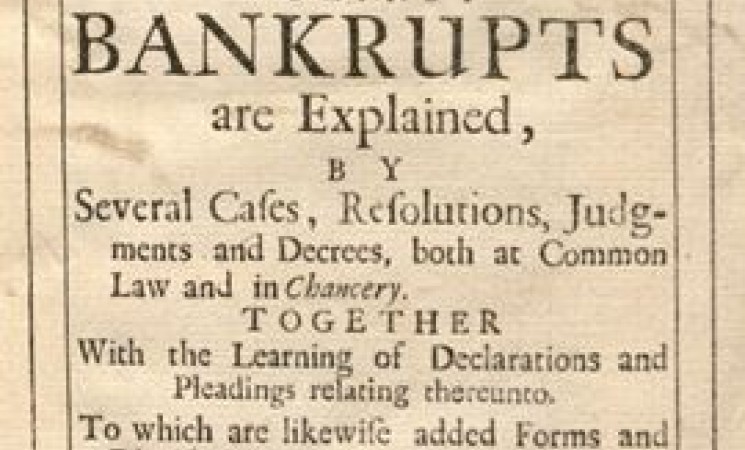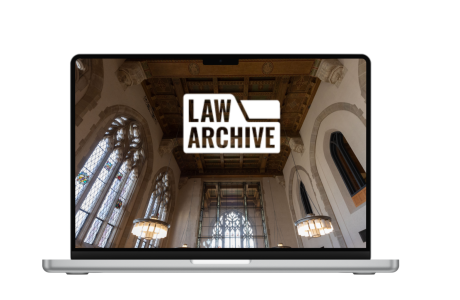The Taussig Collection: Bankruptcy Law

Works on bankruptcy are well represented among the Taussig acquisitions. What might be called early English bankruptcy law established procedures against debtors who transferred property to friends as they fled to ecclesiastical asylum. By the time of Henry VIII, bankruptcy law had evolved to reflect the basic principles of a summary collection and division of assets among all creditors. Other provisions targeted the friends who fraudulently sheltered assets. Later legislation, and the enforcement of bankruptcy laws, could be harsh: bankrupts were increasingly imprisoned and could face corporal punishment, and criticism of English bankruptcy laws abounded into the modern era.
The Library’s acquisitions include two of the earliest English works devoted to the subject. John Stone’s The Reading upon the Statute of the Thirteenth of Elizabeth, Chapter 7, Touching Bankrupts (1656) and Thomas Gooding’s The Law against Bankrupts; or, A Treatise Wherein the Statutes against Bankrupts are Explained (1694), join later works critical of bankruptcy laws, including the anonymous Considerations on the Present Administration of the Bankrupt Laws (1795), and John King’s Oppression Deemed No Injustice Towards Some Individuals (1797), in which King took up his own cause in bankruptcy.
In the eighteenth century, the commissioners who ran bankruptcy proceedings also became a target of criticism, something seen in Considerations on the Present Administration of the Bankrupt Laws. The work sets out four basic recommendations for improving the laws: 1) proceedings under bankruptcy commissions should be more attentive and deliberate; 2) property should be better preserved and more justly divided among creditors; 3) all money received and paid under commissions should be investigated; and 4) mercy should be shown toward deserving bankrupts.
The great English judge Lord Mansfield thought that bankruptcy statutes were something of an embarrassment in common law; nevertheless, the law grew in complexity in the eighteenth century and led to detailed treatments like Cooke’s The Bankrupt Laws, 2 vols. (1793), which the Library has also acquired from Taussig.
The Taussig acquisitions were funded in large part by a generous grant from Yale Law School’s Oscar M. Ruebhausen Fund.
– RYAN GREENWOOD, Rare Book Fellow

